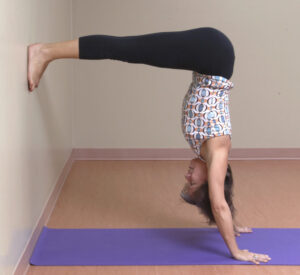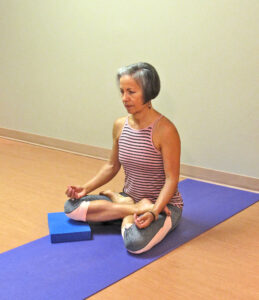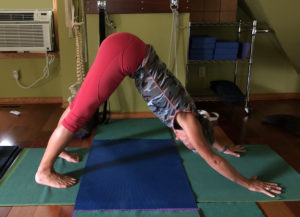For most people, the key to becoming a better leader lies not in training or skills development, but in self-awareness. Les McKeown
Whether we are leading a team, an organization or ourselves through uncertainty, it is what we are unconscious of that often blocks our ability to move forward. I am not talking about those personal or professional vulnerabilities for which we have already developed an action plan, but rather response patterns so deeply entrenched we are not aware we enact them.
One that has recently surfaced in my awareness is my tendency for efficiency to take over. When I intend to meet with a client, my pattern has been to prepare for as many scenarios as I can imagine might be discussed. Unfortunately, this can result in my setting the agenda and creating more work, neither of which may add value to the client interaction. In addition, this busyness takes away from my ability to be present to what is emerging and to then integrate what is needed in the moment. This latter response allows for more to lead than only one, which typically creates the engagement, creativity and synergy necessary to deal with uncertainty and complexity. More importantly, I get to contribute my core skills of invention and integration as opposed to allowing efficiency to dominate the agenda.
Furthermore, communication technologies, although convenient and cost-effective, have added their own complexity to online interaction with others. Advances in social technology (Face Book, Twitter, LinkedIn, Skype, etc.) remove traditional physical barriers to interacting with customers and employees. We are more connected than ever before but less able to rely on the f2f feedback of others (verbal and non-verbal), which was often a performance improver for those involved. These digitized interconnections are now easily made throughout the world, and demand from each of us a deeper awareness of our own experience if we are to successfully and harmoniously lead in our lives as well as the lives of others.
As a leadership coach, my main focus with clients is to enable discovery of their unconscious patterns and how they impact their decisions and performance. Below are 20 questions I borrowed and invented over the years to uncover personal blind spots.
- Are you a joyful person?
- What is the source of your joy? What excites you?
- How often each week do you include joy-filled activity into your schedule? Each day?
- What is the source of your sadness? Depression?
- How often each week do you find yourself feeling sad or depressed? Each day?
- What triggers a crazy reaction in you?
- What triggers a lazy reaction in you?
- How do you prefer to communicate? Convey information? Receive information?
- What type of people do you find most irritating?
- What type of people do you fall for too easily?
- What is your default strategy when faced with a difficult problem?
- What can’t you know enough about?
- About what have you heard all you ever want to know?
- What environment juices your creatively?
- What environment drains your creatively?
- What is your core skill?
- What do you contribute most?
- How do you recognize the truth?
- What makes you stop listening to people?
- How do you act differently in a group or team environment? With people you love?
As Socrates, who died in 399 B.C., stated, “All knowledge is self-knowledge.” Today, we might translate this to say, “To know oneself is to know Life.” In essence, it is our inner moment-to-moment experience that sheds light and wisdom on our world. What greater rationale could exist for self-awareness.
What introspective tools do you use to heighten your self-awareness, leadership and contribution?
For more about expanding your awareness, click here.





